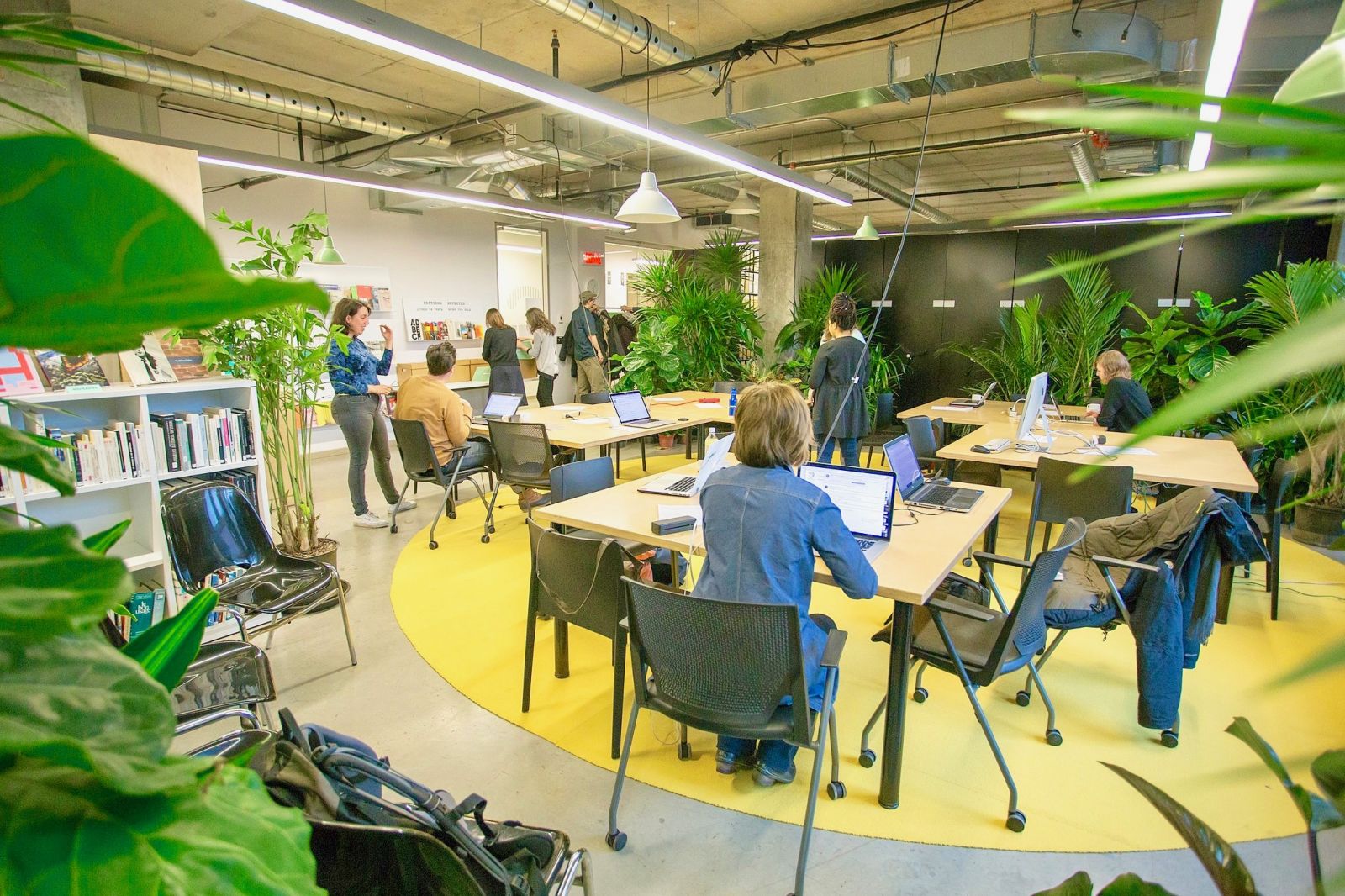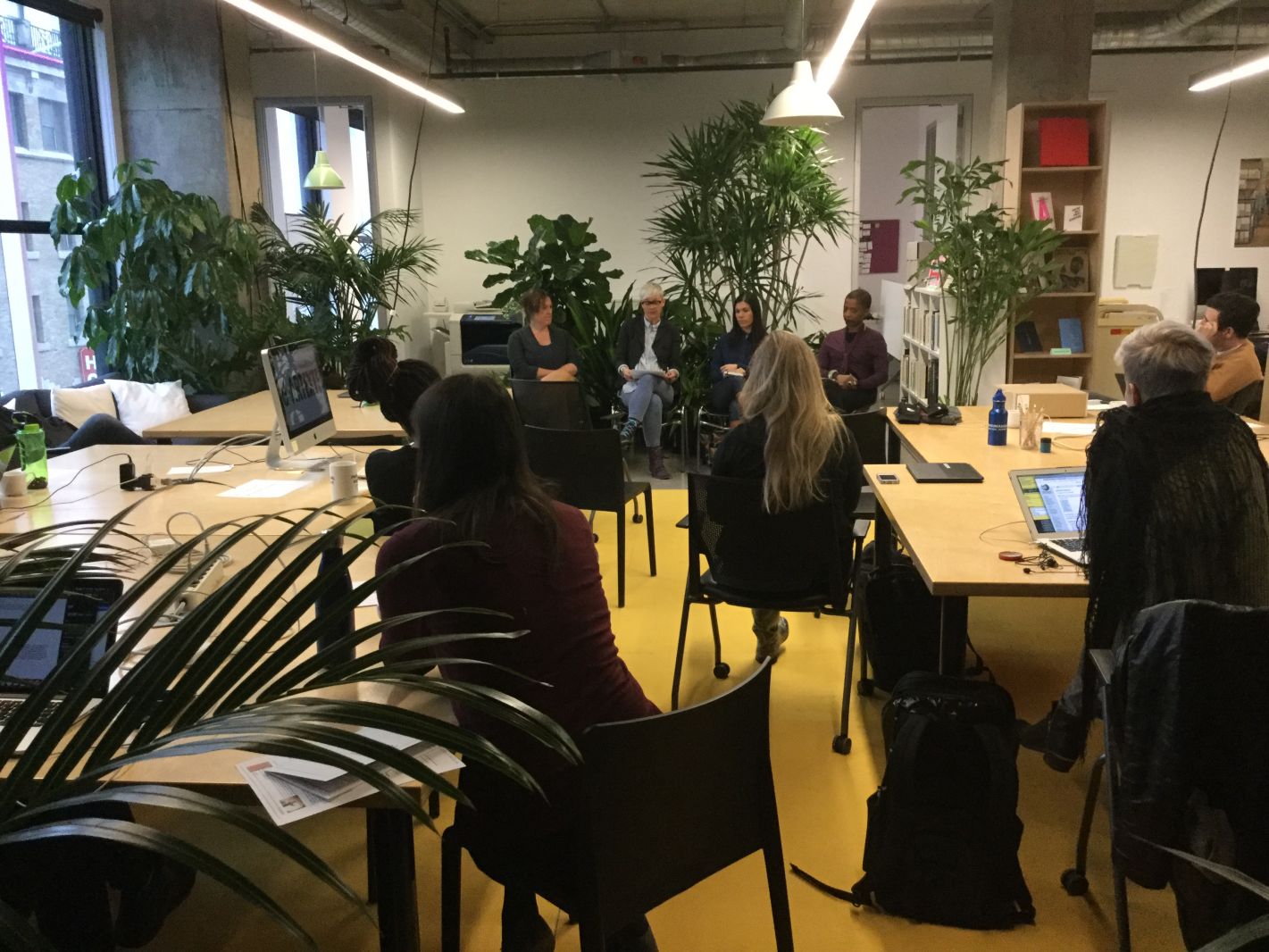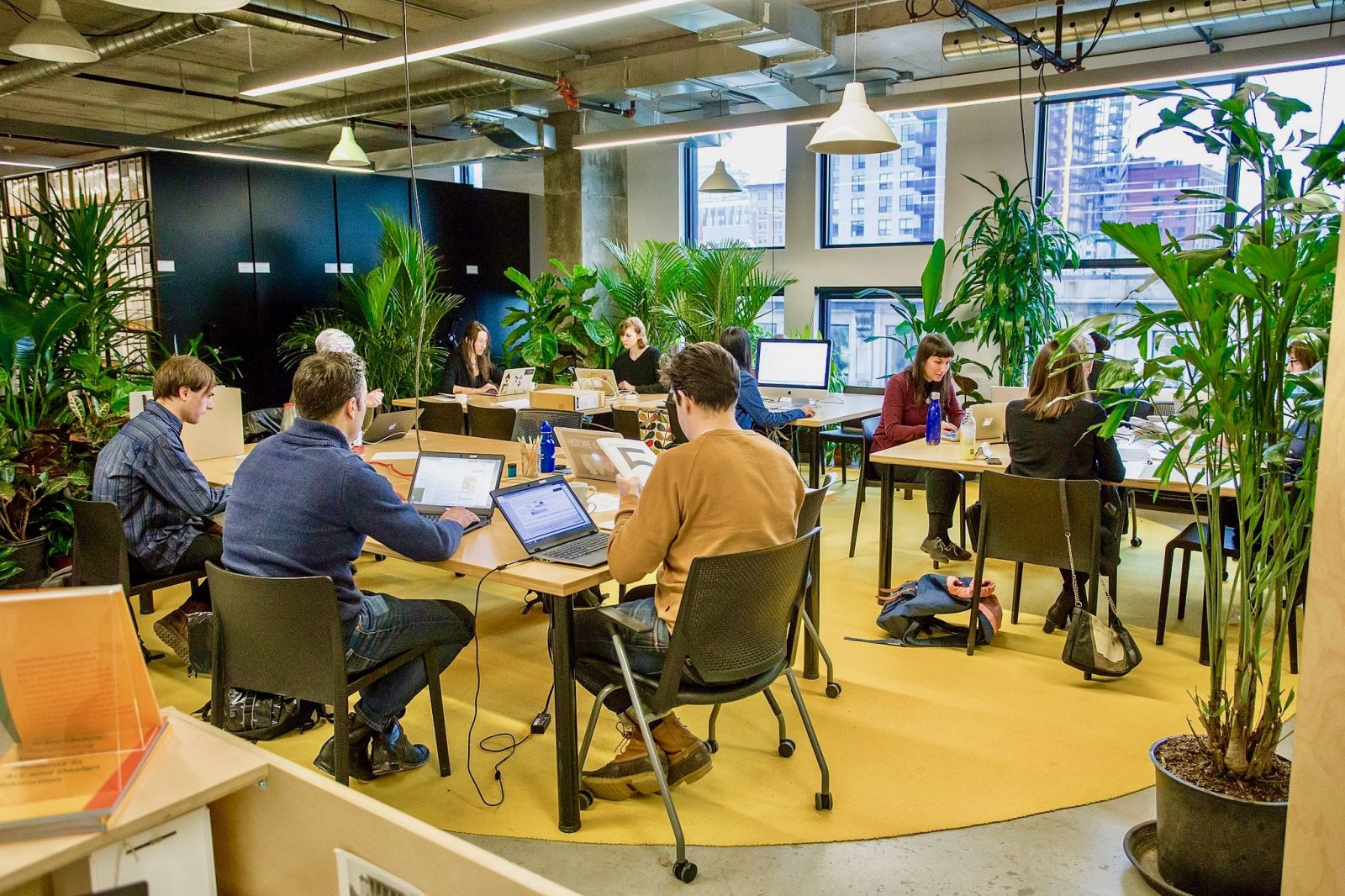The following essay presents some of the topics discussed on March 30, 2019. Invited guests were Lëa-Kim Châteauneuf, librarian with the City of Montréal and Vice-President of the Wikimedia Canada Foundation since 2017; Dominique Fontaine, independent curator and co-curator of the exhibition Here We Are Here: Black Canadian Contemporary, presented at the Royal Ontario Museum and the Montreal Museum of Fine Arts; and Tamar Tembeck, General Director of Oboro artist-run centre and co-editor of The Participatory Condition in the Digital Age, published in 2016.[3]3Darin Barney, Gabriella Coleman, Christine Ross, Jonathan Sterne, Tamar Tembeck, eds. (2016). The participatory condition in the digital age. University of Minnesota Press. The discussion was moderated by Krista Geneviève Lynes, Associate Professor in Communications Studies at Concordia University, director of the Feminist Media Studio, and Canada Research Chair in Feminist Media Studies.
According to Tamar Tembeck, the first steps in the history of feminist art aim to include the names of people who have been historically excluded or forgotten. Wikipedia Art + Feminism edit-a-thons also reflect this vision. In fact, adding the names of women and underrepresented individuals helps contribute to the plurality of voices on Wikipedia. Tembeck also underlines the importance of producing structural changes, not just superficial ones. Moreover, in the context of an edit-a-thon, she believes we must consider not only who to include, but also which modalities and systems of inclusion will restrict or permit entries to the encyclopedia.
The Wikimedia foundation believes that the encyclopedia belongs to its members and contributors. In theory, any individual can contribute, regardless of age, gender, education, or geographic origin. However, despite Wikipedia’s democratic model, the true fabric of our society is still not adequately represented. In fact, the Wikimedia Foundation acknowledges that a gender bias does exist; even today, there are estimates that only 8.5 to 16% of contributors identify as women.[4]4Wikipédia (). Biais de genre sur Wikipédia. Online.
The encyclopedia aims to provide a synoptic and reasoned representation of all human knowledge.[5]5Wikipédia (). Wikipédia est une encyclopédie. Online. The eligibility of new articles is vetted by Wikipedia’s community of editors through its notability guidelines.[6]6Wikipedia (). Notability. During this process, the quantity and quality of an article’s sources are verified. To determine notability, a number of reliable third-party sources must be found.[7]7Wikipédia (). Citez vos sources : Quelques critères de qualité. While the inclusion of primary sources is allowed, third-party sources are prioritized, since Wikipedia is first and foremost a resource based on previously published work, not the dissemination of original work.
It goes without saying that notability is essential in justifying the inclusion of a new article. However, questions remain as to how these eligibility criteria are established and applied. Tembeck reveals a double-standard in how some individuals are treated and represented within the encyclopedia. For women more than for men, notability is often based on personal life events rather than on professional accomplishments.[8]8 (). See the example of Ada Lovelace vs. Charles Babbage in Wikipedia (EN). Online. Lëa-Kim Châteauneuf states that the under-representation of people on Wikipedia extends to other media as well.[9]9Wikidata Human Gender Indicators (WHGI) (). Gender by Language. Online. Dominique Fontaine supports this notion, stressing the importance of an inclusive history of art. She also points out that the absence of artists from the African diaspora and from the Global South is threefold: in museums, in art criticism, and in digital platforms on the web. Thus, when submitting articles on these artists, it’s often more challenging to locate sources that will be accepted by the majority of Wikipedia’s member editors.
Furthermore, the work of representation must begin before new articles are even submitted to Wikipedia, since, in order for notability criteria to be validated, reliable and recognized third-party sources must already exist.[10]10Wikipedia (). Identifiez des sources fiables. Online. According to Fontaine, publishing articles in magazines or on the web is part of this parallel work and must be continued. Châteauneuf agrees, and emphasizes the importance of ensuring that subjects of interest to us be present within the larger media world.
Fontaine also notes that museums, artist-run centres, and art documentation centres must think outside the box to give artists of African descent and from the Global South greater recognition. She believes that institutions like Artexte and museum-based documentation centres should increasingly integrate documents on the work of these artists.
Châteauneuf notes that Wikipedia’s 293 encyclopedias are linguistic, which is problematic in linguistic-minority contexts.[11]11Wikipedia (). Size comparisons. Online. For example, in Québec, the validity of certain media, such as the newspaper La Presse, was still recently contested by francophone editors, the majority of whom are from France. They claimed the source did not meet the requirement of being national in scope, that is, being pan-Canadian.
Edit-a-thons are useful in that they enrich existing content and play an important role in the development of digital literacy in new contributors to the encyclopedia.[12]12Sue Gardner (2011). Nine Reasons Women Don’t Edit Wikipedia (in their own words). Online. These accessible workshops help us learn more about this platform and how to use it.
Tembeck also highlights the importance of getting to know the platform’s content, function, and policies. She considered the possibility of working with others to meet this challenge. Regardless of good intentions and legitimate content, an article can be rejected if it does not respect the encyclopedia’s internal rules. If we are to successfully contribute to Wikipedia, we must first know its rules and understand its culture.
Direct involvement can only result in better representation on Wikipedia. But articles are only the tip of the iceberg. Behind every article are discussion pages where participants can debate the issues at hand, especially regarding articles that are subject to deletion.
Châteauneuf favours an activist approach. She believes we must take risks and not hesitate to submit an article that might be deleted. In this case, the remaining traces will help demonstrate bias and may lead to changes in the overall rules. It pays to be proactive!
By their participation in Art + Feminism Wikipedia edit-a-thons, Artexte and the MAC activate their collections to make Wikipedia more representative while encouraging agency among the encyclopedia’s underrepresented people. For Artexte, these events reflect our mission of conservation and knowledge-sharing, as well as our values of inclusivity and respect.
At the end of this March 30, 2019 event, 27 contributors collectively created 9 new articles, improved the content of 59 existing ones, and added 4 images to Wikicommons. As of September 16th, 2019, these articles had been accessed more than 16,400 times.



